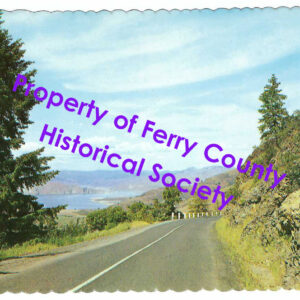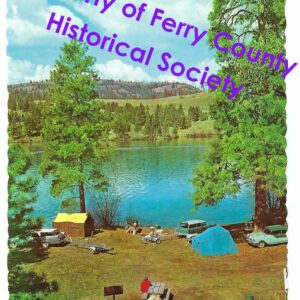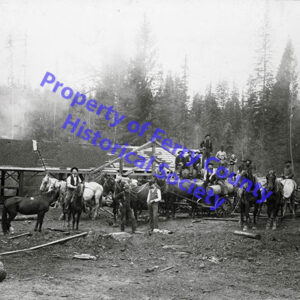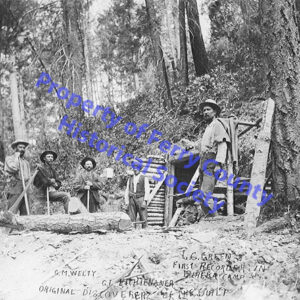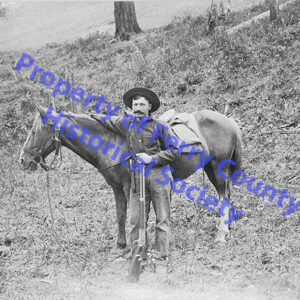MacDonald Panels
Many people have remarked that they miss the three panels illustrating the life of Ranald MacDonald, Japan’s first English teacher, that formerly stood beside the Kettle River Road near his grave. They were removed two years ago because of
weather damage. They were painstakingly restored by the original artist, Charlene Payton-Holt, and are now ready to be displayed again. There is only one problem: if they are exposed to the weather again they will eventually deteriorate too far to be saved. The restoration Involved great expenditures of time and effort and no one involved will be able to do it
again. These panels cannot be replaced.
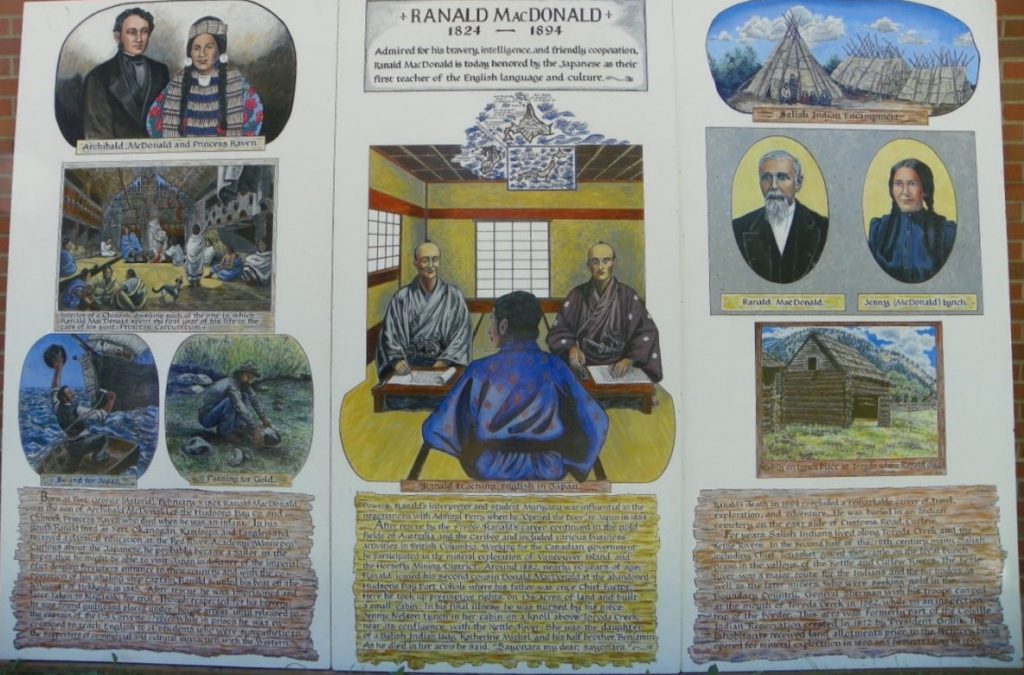
One possible solution to the problem is to have full-size photographic reproductions of the panels made and display them at the original site. The originals would be stored until the FCHS has a display area where they can be kept indoors away from the weather. Signs created using this method are used in some parks in the state. They have worn well and can easily be
replaced if necessary. Creation of the photo reproductions is estimated to cost approximately $300.00 per panel. Two FCHS members have already volunteered to sponsor one panel each. Are there any volunteers for the remaining $300.00? It would be good to get this done before the end of this year’s tourist season if possible.
J.W. and Elizabeth Slagle House
The J.W. and Elizabeth Slagle House will be open for tours on the following Saturdays this summer:
May 28, June 25, July 23, and August 27 from 11:30 A. M. to 3:00 P.M…
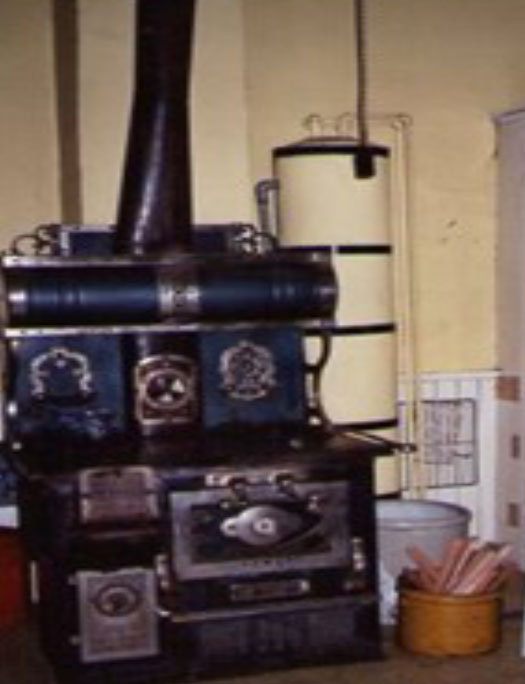
source of hot water.
Tours can also be arranged by appointment. For an appointment call Jean Delaney at (509) 207-0070.
The Slagle house and its original furnishings illustrate how life was lived in Republic from 1909 to WWII.
Great Northern Railway Historical Society Tour
The forty- person bus tour of former Great Northern routes planned by the GNRHS is now full and there is a waiting list in case of cancelations. The tour will use two small buses and members have rooms reserved at the Northern Inn and the Prospector for the night of September 22nd. Republic’s museums will be open for the tour that evening and the FCHS will buy tour members a drink at the Republic Brewery if desired. Breakfast the 23rd will be catered by a local provider.
Please make these folks welcome and come meet them at the museum across from the park, the J.W. and Elizabeth Slagle house, or the Brewery.
New Old-time Chautauqua
The New Old-time Chautauqua traveling show will be in Republic at the school on August 5th and 6th.Paul Magid, NOTC’s “advance man” will be here for final planning and publicity June 17th.
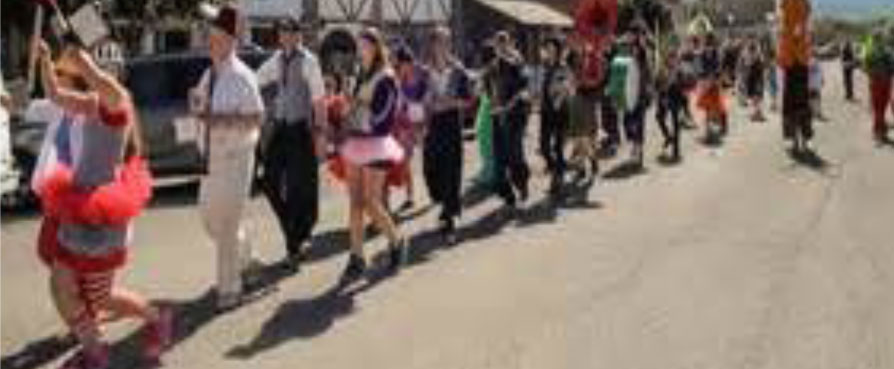
Opportunity!
How long has it been since you have seen Anderson Grocery’s flour mill, or the massive cement mixer that poured most of Republic’s pre WW II concrete buildings and foundations? Did you even know that these parts of Ferry County’s past existed? They do exist, along with two blacksmith’s forges, five antique washing machines, a lot of historic mining equipment, samples of the town’s original wooden water mains, and much more. This is the Ferry County Historical Society’s collection, donated by Ferry County residents to aid in preserving and interpreting our history.
The collection has been in storage for years in a variety of city and privately owned spaces where Society members can’t get at the items to clean, stabilize and record them or use them in interpretive exhibits. The collection, presently packed too tightly to work with, takes up over 3,000 square feet of floor space.
We now have an opportunity to change this situation and get the whole collection into one facility with enough display space to bring the flour mill into public view again and enough preparation and storage space to work with the collection. Washington State, working through the Washington State Historical Society, makes grants available every two years to “support the capital needs of facilities and organizations that preserve and interpret Washington’s history and heritage”. This covers both new construction of museum buildings and restoration of historic buildings. These Heritage Capital Project (HCP) grants are available to 501c3 non-profit organizations, local governments and agencies, tribal governments and public development authorities.
These grants are designed to cover 1/3 of a project’s cost. The local agency applying for the grant supplies the remaining 2/3. Half of the local match can be in-kind. This looks like our best opportunity to get the collection out of storage spaces whose owners need them for other uses and into one space where it can become a working part of our interpretive efforts.
One of the major hurdles in capital projects is acquiring the real property, either an historic building to restore or land for new construction. The FCHS already has land. The three city lots on Keller St. across 9th St. from the historic J.W. and Elizabeth Slagle house where given to the Society along with the house by the Slagle family. The lots were formerly the family’s garden but have been unused for several years.
This year’s workshops on how to apply for CHP grants took place in April with a May 19 deadline for applications. This was too short a time to get a successful grant application organized for this grant period but it gives the Society two years to consult with a local architect, raise funds and explore other sources for funds that can be applied to the 2/3 match. Fund raising will begin this fall following the September visit of the Great Northern Railway Historical Society.
